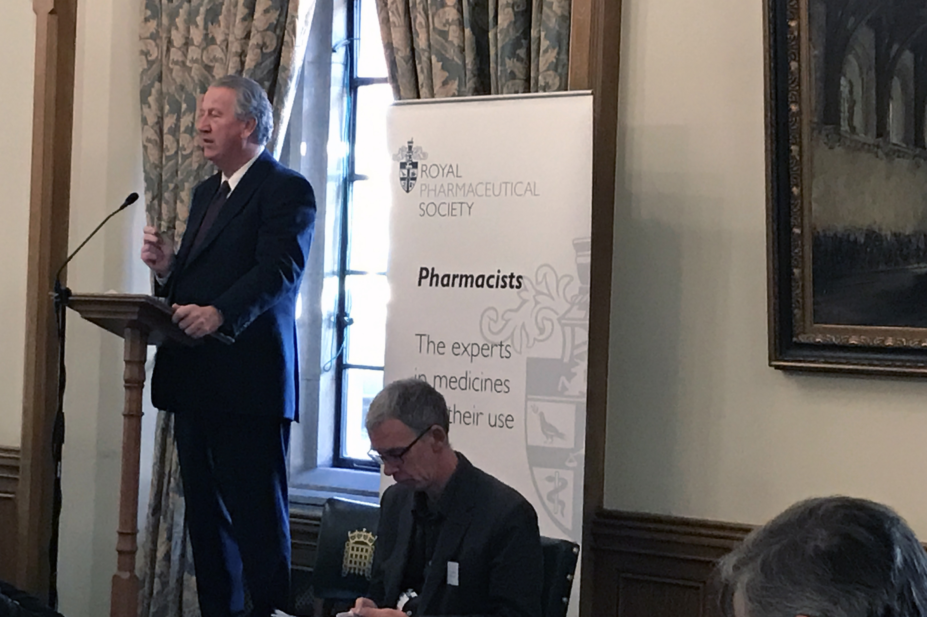
Courtesy of Julia Robinson
Community pharmacists must be able to prescribe medicines for people with long-term conditions routinely and refer them directly to other healthcare professionals to reduce the burden on other parts of the health service, according to a report published by the Royal Pharmaceutical Society (RPS) in England.
The report, ‘Frontline pharmacists: Making a difference for people with long-term conditions’, was launched at a parliamentary event in the House of Commons on 30 November 2016 and forms part of the RPS GB-wide campaign on long-term conditions. In it, RPS England calls for commissioners, NHS trusts, GP surgeries and community pharmacies to develop collaborative arrangements for certain patients with long-term conditions to be managed partly or completely by pharmacists.
Speaking at the launch, health minister David Mowat congratulated the RPS for its “constructive” and “timely” report in light of the NHS Five Year Forward View and upcoming review of community pharmacy services being led by Richard Murray, director of policy for the King’s Fund.
In line with the RPS recommendations, Mowat supported the call for more pharmacists to become prescribers. “We’d very much like to see a major role for pharmacists in the NHS, 1,500 pharmacists have been recruited into GP practices, we’d like to see all of those become prescribing pharmacists – there needs to be more prescribing pharmacists,” he said. He also recognised the continuing need for pharmacists to have write, as well as read, access to the patient health record.
Also at the launch, Nav Chana, chair of the National Association of Primary Care, said he was “very excited” by the report.
“It [describes] the type of competencies and skills a system of care needs without worrying about where that care is provided and highlights again the important role pharmacists, pharmacy teams and community pharmacies play within any model of care.”
Sandra Gidley, chair of the RPS English Pharmacy Board, says the current model for managing patients with long-term conditions does not serve patients well and puts GPs under “intolerable pressure”.
“Unless we change the way we care for people with long-term conditions, projections show that demand will become unmanageable. Neither the NHS nor patients can afford to wait any longer to create capacity in the system,” she says. “Our proposals mean pharmacists working with GPs, hospital doctors, nurses and patients to make sure the profession plays a role in taking on the challenges and improving the care of people with long-term conditions.”
The report, which is supported by Pharmacy Voice among other organisations, recommends that pharmacists play a key role in managing people with one or more long-term condition who are taking several medicines. Pharmacists should also contribute to the prevention and screening of disease and have protected time to advance their practice and sustain their professional development.
RPS England is also calling for public health organisations to fund the use of community pharmacies to target health promotion subjects, such as smoking cessation, that impact on the management of long-term conditions.
The recommendations have also been welcomed by the Patients Association, a national healthcare charity promoting the voice of patients in health services. Chief executive Katherine Murphy says being able to speak to a local pharmacist helps patients access care close to home or work and removes the anxiety many patients have when waiting to see their GP.
“The Patients Association warmly welcomes pharmacists becoming trained prescribers, not just because it will take pressure off GP surgeries, meaning a better service for patients who need to see their GP, but also because it is better for patients who don’t need to see their GP. It is a win-win situation for patients,” says Murphy.
You may also be interested in
Long service of members

Membership fees 2022
